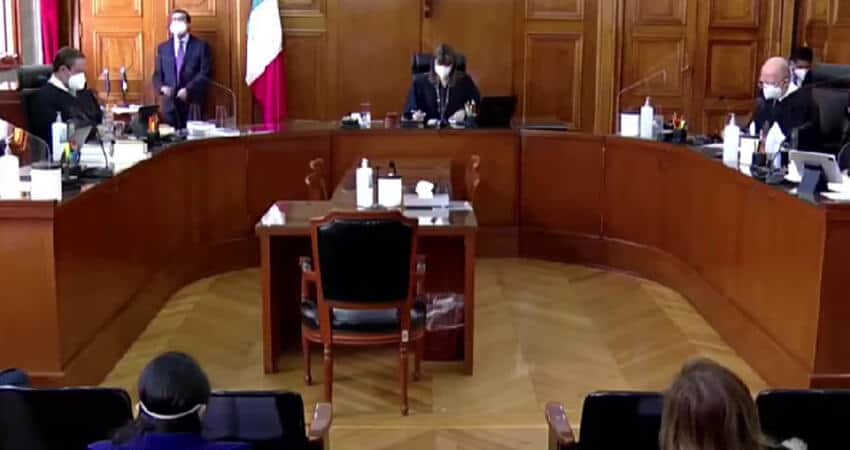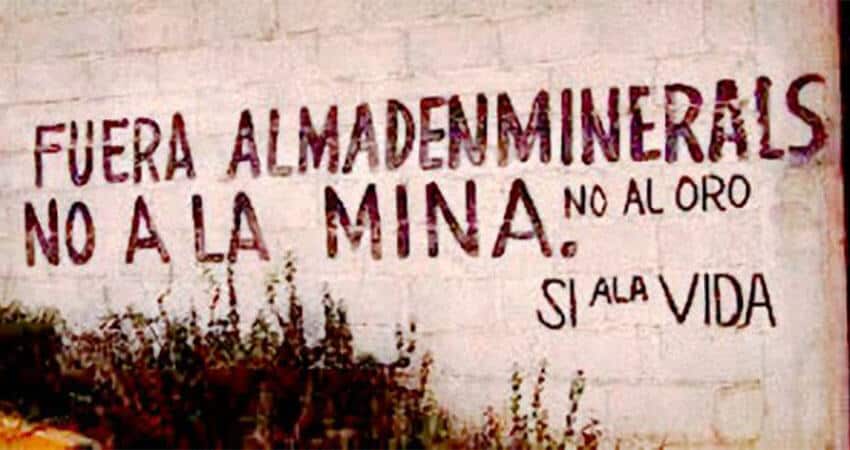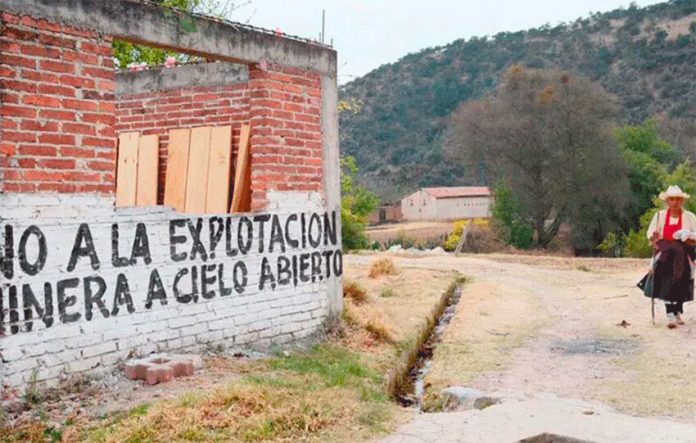In an unprecedented ruling, the Supreme Court (SCJN) on Wednesday revoked two mining concessions in Puebla because the federal government failed to consult with the local indigenous community before granting them.
The Economy Ministry (SE) granted concessions in 2003 and 2009 to a Mexican subsidiary of the Canadian company Almaden Minerals.
The concessions allowed the company to mine for gold and silver in Tecoltemi, a community in the Sierra Norte municipality of Ixtacamaxtitlán, although actual mining has not started.
In 2015, a group of Nahua residents concerned about contamination and overexploitation of local water sources filed a challenge against the concessions. Their lawsuit passed through lower-level courts before reaching the Supreme Court.
It is the first time that the nation’s highest court has invalidated mining permits for neglecting to consult with indigenous residents, according to lawyers and legal experts who spoke with the newspaper El País.

However, the SCJN didn’t rule that four articles of the federal mining law are unconstitutional, as the plaintiffs had hoped it would. One article the Tecoltemi residents wanted the court to rule against says that mining takes precedence over all other kinds of land use.
However, the SCJN did declare that, in accordance with the constitution and Convention 169 of the International Labour Organization’s Indigenous and Tribal Peoples Convention, which Mexico ratified on September 5, 1990, the government should have consulted with indigenous residents of Tecoltemi before granting the concessions.
The court rejected the defense put forward by the federal government and Almaden that consultation should take place after rather than before the granting of concessions. However, its ruling, which could aid other communities in their fight against mining interests, may not definitively shut down mining in Tecoltemi because the concessions are likely to be reissued.
Almaden acknowledged that likelihood in a statement released Thursday.
“Almaden has reviewed a draft of yesterday’s SCJN decision. As it stands, the draft decision determines that the Mexican mineral title law is constitutional but that before issuing Almaden’s mineral titles, the Ministry of the Economy should have provided for a consultation procedure with relevant indigenous communities,” it said.
“The draft orders the Ministry of the Economy to declare Almaden’s mineral titles ineffective and to reissue them following the ministry’s compliance with its obligation to carry out the necessary procedures to consult with indigenous communities,” the Vancouver-based company said.

Almaden, which has invested millions of dollars in its Puebla project, acknowledged that the court’s final decision could be different from the draft version it saw.
“The decision will take effect at the time of official notification of the decision to the company, which is expected within the next two months,” it said.
“Almaden intends to review the final decision when it is available and interact with Mexican government officials and local community officials in order to fully understand the impact of this decision on the company’s mineral claims prior to determining its next step.”
Itzel Silva, a lawyer with the Fundar Center for Analysis and Research who represented the Tecoltemi residents, said that the SCJN had missed a historic opportunity to deem the mining law unconstitutional.
“What the law does … is make the delivery of land to [mining] companies possible. It’s the origin of the violations,” she said.
Nevertheless, its revocation of the concessions sets a “precedent that consolidates … the right to consultation … and it has constitutional standing,” said National Autonomous University legal academic Rodrigo Gutiérrez.
“Fifteen years ago, courts didn’t even recognize the rights of indigenous people nor that Convention 169 was part of the constitution,” he said.
With reports from El País
